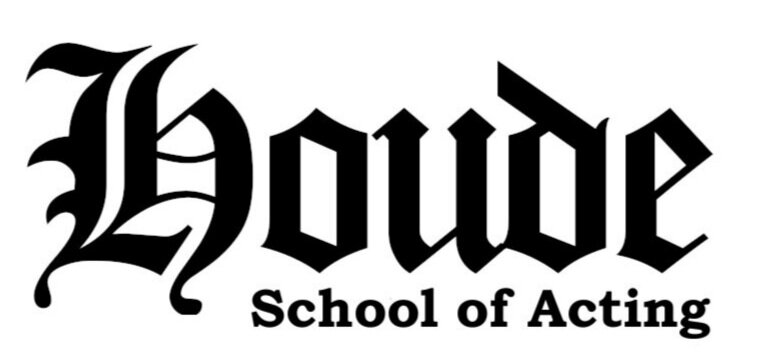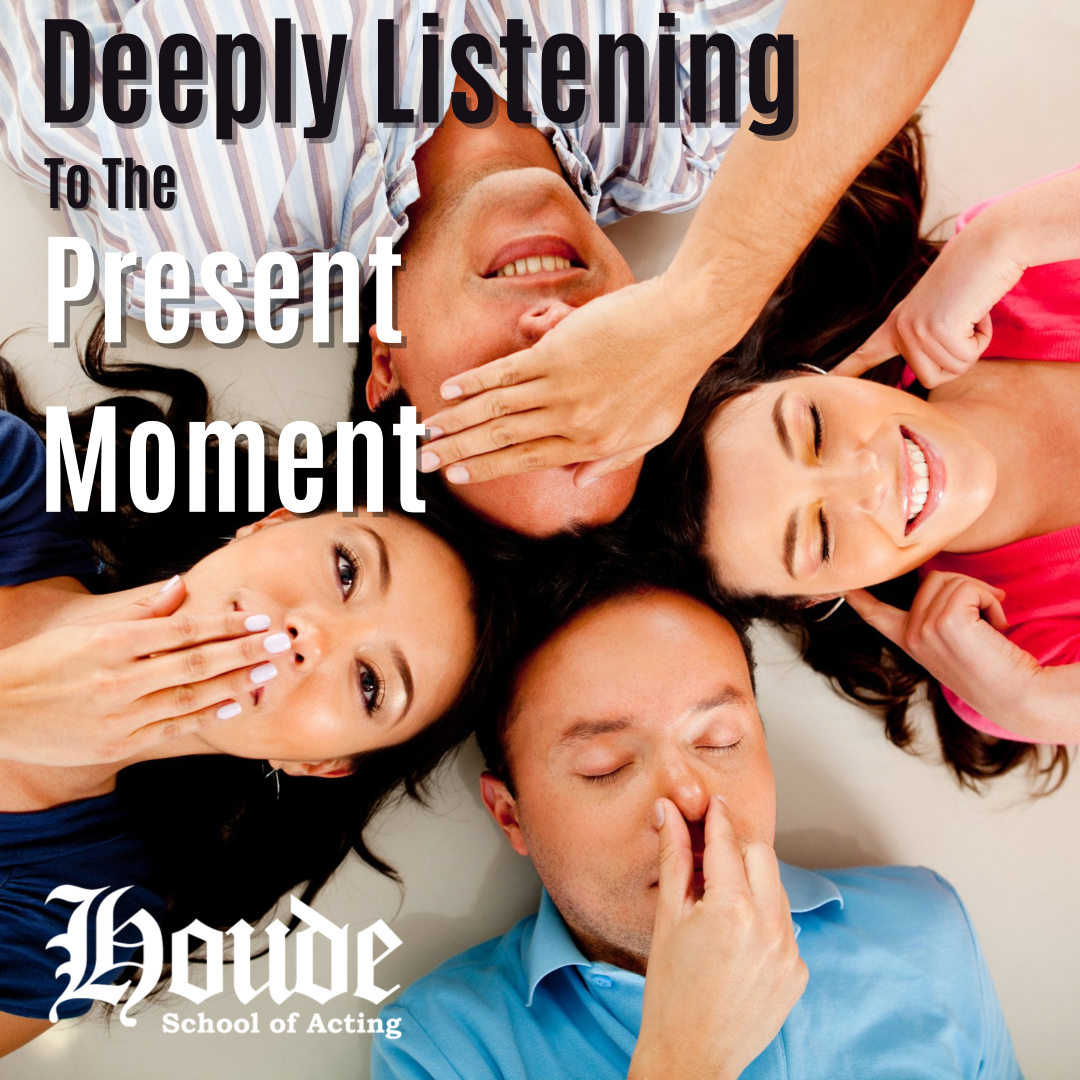Deeply Listening To The Present Moment
Listening requires energy, focus, and near-constant attention-- and is vital to an actor.
"Pay attention." "Listen up, everyone!" It is often not until someone says these phrases or a situation has grown dire that we begin to listen and be present with our surroundings at a deeper level. There is almost always something else to divert our attention away from the present moment, especially with social media almost always close to our fingertips and a constant stream of media vying to grab our attention. We generally prefer something to be expedited for convenience, but it often is at the cost of our level of awareness and focus. Studies have shown that the average person listens with only 25% efficiency. This shows us that even when someone tells us something important, we may only retain very little of what is audibly said. To be fully present with our partners while acting—we need to utilize full-body-listening with all five senses.
So how can we tell if we are deeply listening, present, and using everything to our advantage in our work?
Stop. Take a moment. Look around your environment. Let go of the inner dialogue that may be judging this type of exercise and soak in as many details of your surroundings as possible. Look for the things that you haven't noticed before. Is there a stain on the carpet you may have never seen before? Is there anything out of place? Is there a pattern on a chair that catches your eye? Let your eyes take it all in. Then listen to your environment. Even if it seems quiet-- listen for any sounds. Get specific and name as many of them as possible. Is your stomach growling? Is a refrigerator humming? Once you've spent at least a moment to hear your environment, is there anything physical that can be touched nearby? A surface such as a table or an odd pen left sitting out are good examples. How does it feel? Is it smooth or rough? Is it round? Is it malleable? Then let your sense of taste and smell take control. Is the air dry? Does it smell stale? Does it smell clean? How does that sensation taste in your mouth? Once you have completed this exercise with all five senses-- continue reading this passage.
Now, you're probably thinking-- how could this possibly have anything to do with acting? This level of attention and focus to your present moment during the exercise, the specific nuances of each thing 'noticed' that registered with you, may all have gone unnoticed until it was brought to your attention. This is what it feels like to be focused on the present moment and to be listening with our whole beings. To notice the 'little things' is to be genuinely listening: and those details we may only notice from being truly present may 'make' or 'break' a scene.
Although this exercise focuses entirely on our environment, imagine how many details we may have noticed if it had been another person. Humans are constantly changing from one moment to the next. One moment someone may be excited, and a moment later, they may be irritated. Yet, if we aren't noticing those shifts in our acting, we lose opportunities to connect and change another person honestly, as we do in everyday life. It is one thing for someone to say, "I'm fine," but does their body language and behavior agree with that? Is it consistent with what they are saying? We need to foster a sense of curiosity in the people we are working with to keep our minds engaged, to listen with our whole selves, and to stay focused on the present moment. If we are not genuinely doing so, we are doing ourselves and our partners a disservice.
Sandford Meisner had his students do a similar exercise when they started their training. One student openly admitted they were only half-listening to the cars outside the studio after Meisner asked them to do just that. Meisner turned to his other students and asked if anyone else had not honestly been listening, and a few other hands went up. Meisner's response was, "So you were half an actor [then]?"
He then had some of these students sit across from one another and observe the person sitting with them in the same level of attention as the listening exercise. The students started naming everything from their hair color to a rash on someone's neck.
"Was this observation done by you or by some character out of a play?... That's you. Your observation was straight, unadulterated observation. What you observed, YOU observed. Not some character in a play." And that is what it means to be truly present. We are not being inhibited by dialogue and choices—we are there presently listening to our partners and able to react to them in response.
These observations with his students would lead Meisner to develop the pinnacle mark of his technique: the repetition exercise. Where literally the first moment of every repetition includes “picking up” something physical on the other person.
To listen, by definition, typically only includes the auditory elements. Still, for actors, we need to be listening with our whole beings and engage with all of our senses to be fully present under the imaginary circumstances— the words are not as important as the behavior. It is not enough to only acknowledge the surface level and superficial in acting. We need to be willing to listen more deeply to feel more deeply in our performances, just as we do in everyday life.
Want to find out more about the Meisner Technique? Come check us out at the Houde School of Acting in our Online Virtual Classes.
by Diana Frankhauser

